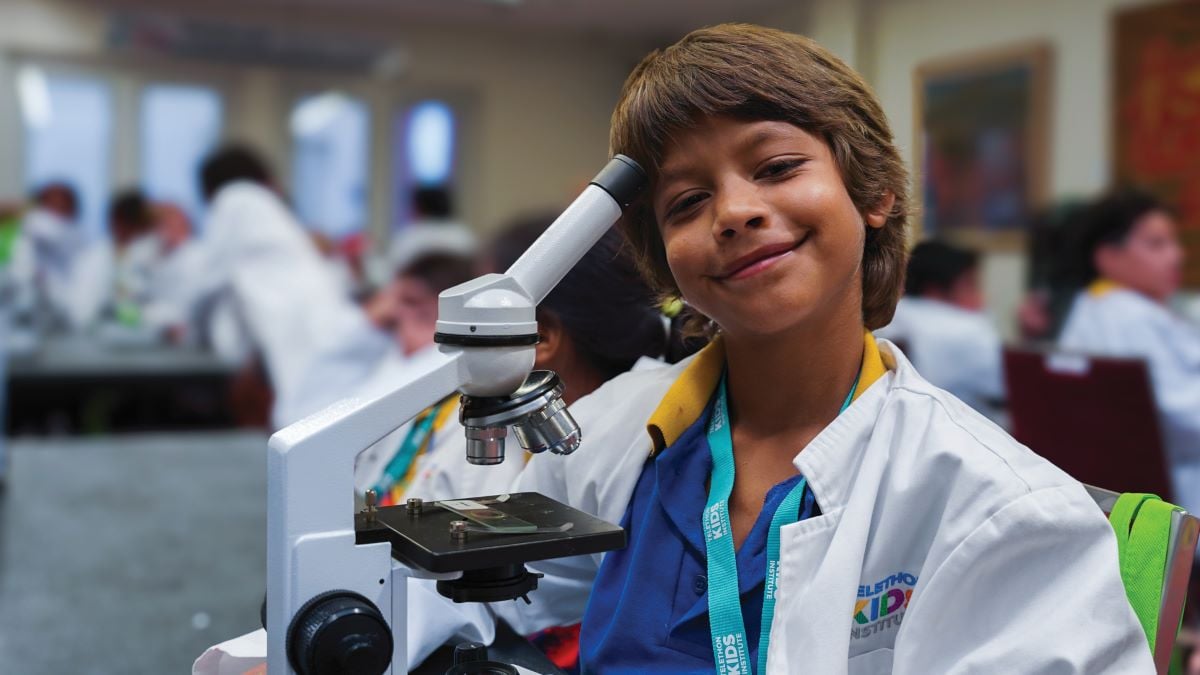Search

News & Events
New study uncovers dual benefit of bone-protecting treatment for childhood leukaemiaA groundbreaking study from cancer researchers at The Kids Research Institute Australia has identified a promising new therapeutic strategy for children battling the most common childhood cancer – B-cell acute lymphoblastic leukaemia.

Ruby Age 16. Youth advocate, project community member. Research is important, it provides evidence for care and treatment. Without

Maddie Age 20. Trial participant, project community member, volunteer. Without input from the community, we can't see how our research

Scott Dad of two, Riley and Georgia. Project community member. Any contribution I can make through community involvement at the

News & Events
The Kids STEM Festival returns for two days of free family fun in BroomeThe Kids Research Institute Australia will return to the Kimberley in May for the Broome STEM Festival, promising two fun-filled days of hands-on science activities for local families to experience.

News & Events
Aspire Award funds global learning opportunityDr Renee Ng, a microbiologist specialising in bacteriophage therapy – an alternative to antibiotics to fight antimicrobial resistance – will travel to the world’s premier conference on viruses, bringing new ideas, connections and expertise back to Perth.




